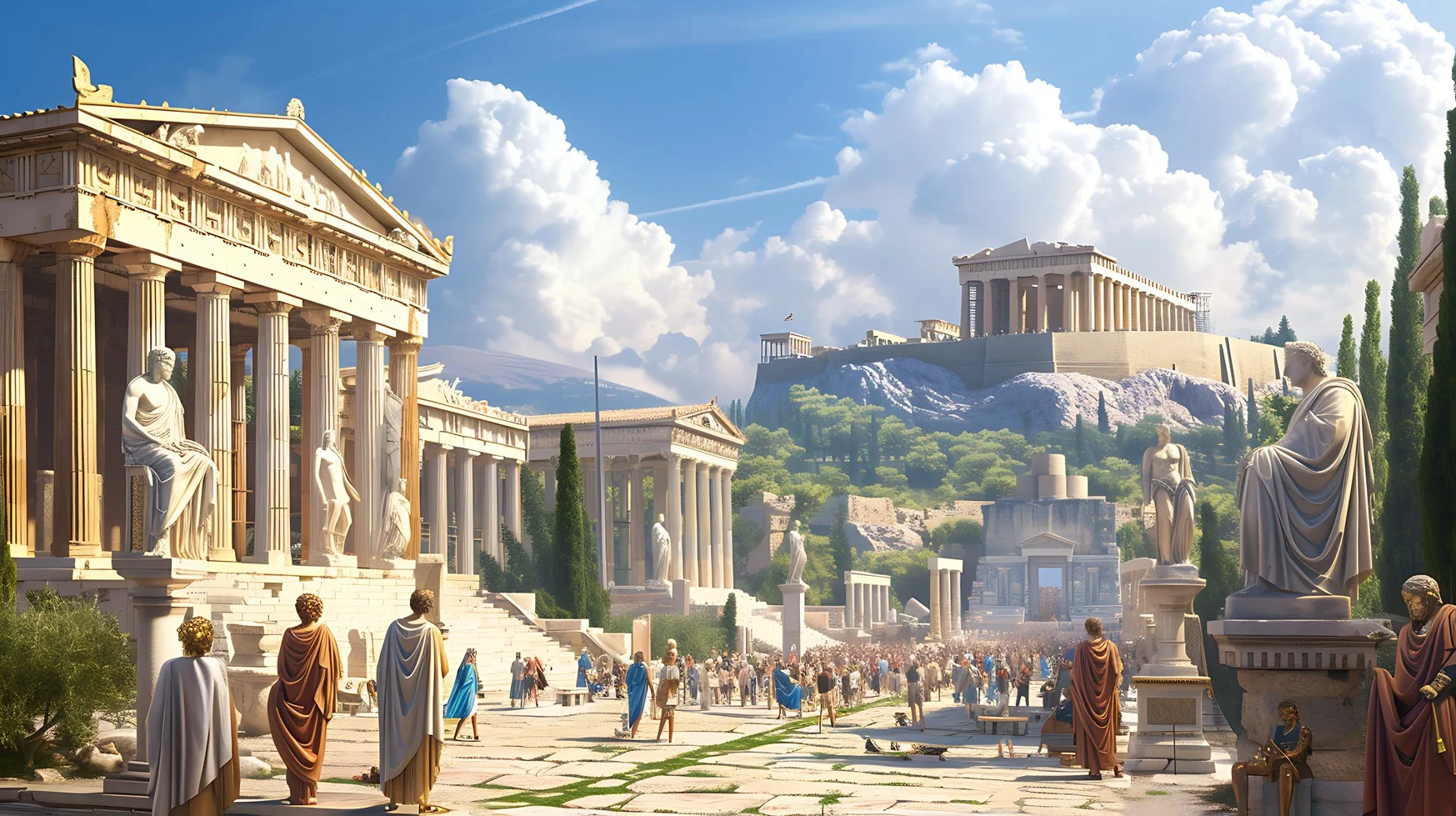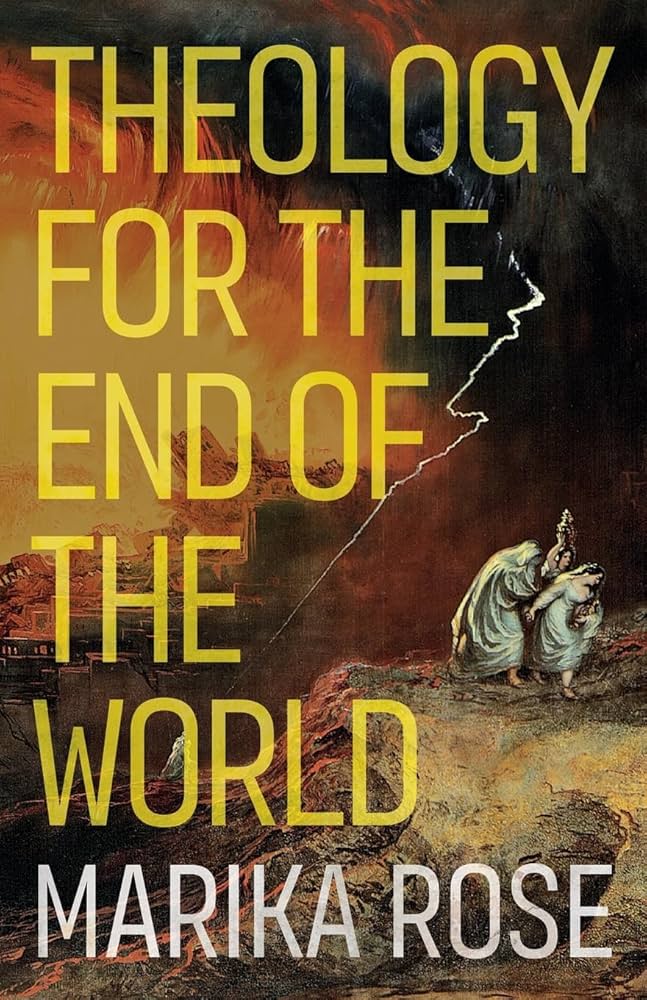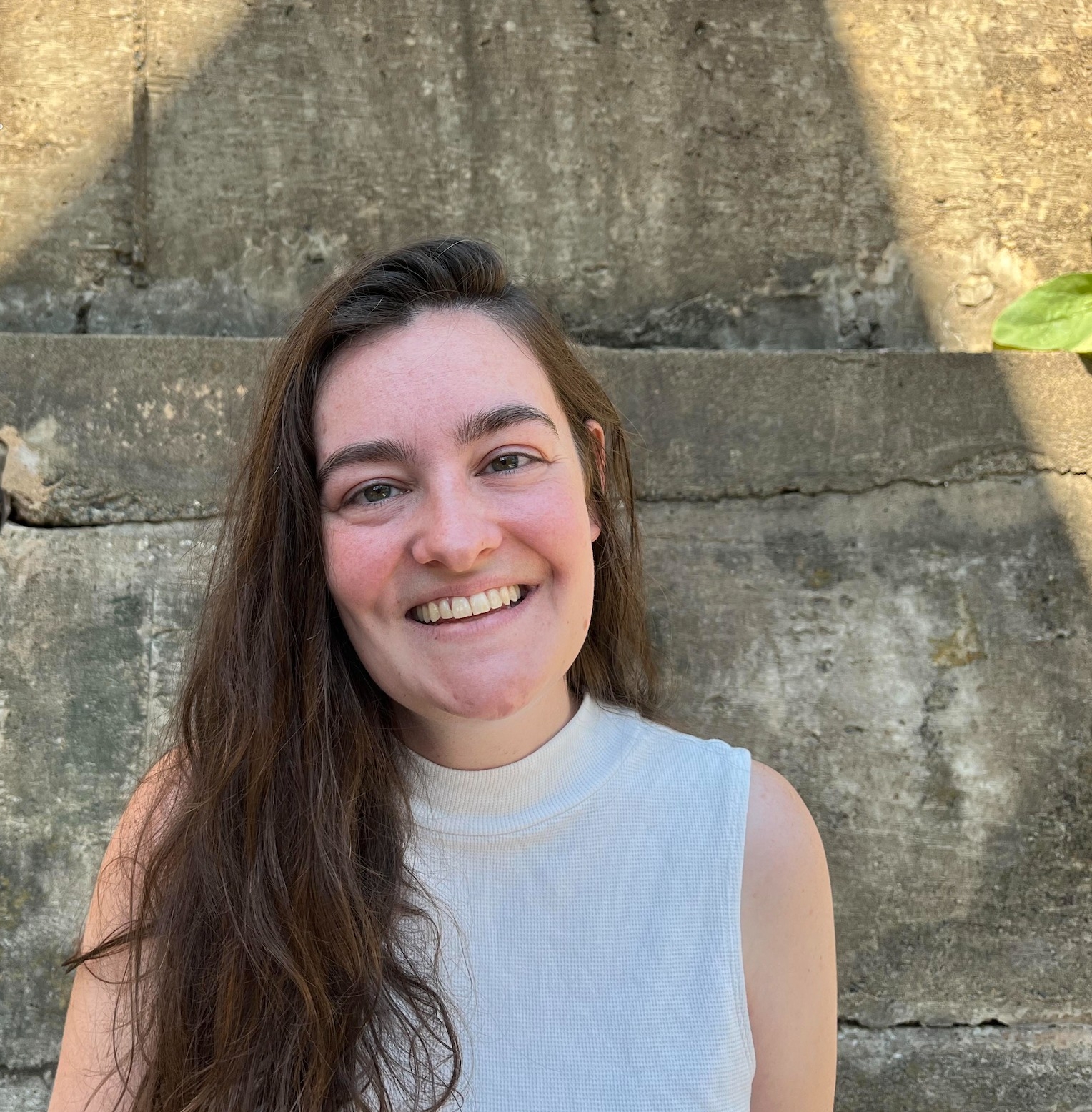A few weeks ago, I found myself at EPCOT in Disney World, darting from air-conditioned attractions to pieces of shade and back to survive the sweltering August heat, on the lookout for all traces of religion in the park.
(How I, a Disney World skeptic since childhood, found myself willingly and even eagerly participating in this project is a decade long story. The Sparknotes version is that marriage can lead to unexpected adventures, and in my case, I married someone who is now a PhD student literally writing a book on Disney and religion.)
Josh’s research on this particular trip took us primarily to World Showcase, the part of EPCOT with pavilions from different countries around the globe. But, partly for fun and partly so we could sit down for a bit where it was cool, we ducked inside Spaceship Earth (the geodesic dome, or giant golf ball in the middle of the park, depending on who you ask).
As we hopped onto the continuously-moving ride vehicles and began our journey up into the darkness of the sphere, after the safety announcements, we heard the recorded voice of Dame Judi Dench, greeting us as she does each passenger: “Like a grand and miraculous spaceship, our planet has sailed through the universe of time; and for a brief moment we have been among its passengers. But where are we going? And what kind of future will we discover there?”

I’d been on this ride two or three times before, and Josh had probably ridden it more than a dozen times. There were no surprises in the historical scenes our ride vehicle took us past: cave paintings, ancient Egypt, Greece and Rome, the printing press, the moon landing, the invention of computers, and then the chance to take a quiz on the little screens in our vehicles to invent our own futures, with flying cars and undersea vacations, depending on how you answer the questions. It’s a fascinating ride with compelling narration, full of admiration for the ingenuity of humanity past and present and full of hope for the future.
Of course, there is plenty to critique about Spaceship Earth’s narrative of the past. In picking and choosing what events to share, they gloss over some of the less pleasant historical moments (which, though problematic, is at least slightly more understandable at a theme park than a Smithsonian Museum).
Beyond questions of historical accuracy, the narrative seems to offer up an elusive promise of linear progress. The ride cars climb up higher and higher, mimicking humanity’s upward trajectory as we learn about how each historical moment built on the last, history a promise of infinite human achievement if we work together and learn from our mistakes.
For some, this hopeful promise of linear progress might be encouraging, but I find it deeply complicated, both as a human living in 2025 and as someone working at a church that values welcome, inclusion, and justice work. I’ve spent plenty of time recently wrestling with the promise of “progress” and “success,” and what happens when our best efforts seem to be doing very little towards shaping the sort of future we imagine, even when it’s work we believe God calls us to. Sometimes the work is simply slow, but often the outcome is the exact opposite of what we’ve prayed and advocated for.
These “failures” might be personal, theological, political, communal. Perhaps it’s realizing it’s time to leave an institution we’d loved and find our way outside the walls, or writing to our elected officials who don’t seem to ever be listening, or working to advocate for a local measure that ultimately doesn’t pass, or finally closing a church or nonprofit that’s been shrinking for years.
What does it mean to show up and bear witness, in our own lives and in the world around us, when the outcome is not guaranteed? And how might we still choose to show up even when we know our efforts will fail? It is one thing to show up to a fight we might still win; another entirely when we know we’ll lose.

In Theology for the End of the World, British theologian Marika Rose thinks about this question in a way that initially set all my Reformed sensibilities on edge. She considers that perhaps some streams of Christianity value usefulness a bit too highly, where both God and humanity become reduced to our functions: what can God do for us? What can we produce? What can we achieve for God? To counter this, Rose suggests what she calls a “theology of uselessness,” where things—namely, God and us—are important “not for what they do but for what they are.”
I know the idea of “uselessness” might seem to run counter to all the ways us Dutch Reformed folk believe God calls us to live and work in the world, but I think this framework actually can help free us from the confines of linear progress or results-based work. Rose writes that when we discard “usefulness,” we are challenged “to do things not because we think we will end up winning but because they are inherently worth doing, or simply because we want to.” [emphasis mine].
In short, we do the work we do in the world because it is work that is right, because we believe in it, because it is worth doing. Not because God needs us to accomplish some sort of secret (or not-so-secret) mission in the world, but because God is calling us to be a certain kind of people. We are not freed from the calling to live as people of love, mercy, and justice, but we are freed from the outcome of those efforts.
One of the most compelling pieces of Spaceship Earth’s narration, to me, comes near the end. In a gentle voice, Dench insists that, “All of us can have a say about the kind of world we want to live in. The choices we have made for the past 30,000 years have been inventing the future one day at a time.”
In a way, I do think it’s true. I think our choices and our work matter, for ourselves and especially for our neighbors. But when we become too focused on progress or an attempt to “invent the future,” or too demoralized when our efforts fail, may we remember that work that is right is worth doing no matter the outcome, and that often God calls us simply to be present right where we are, to bear witness to love in all the terror and injustice and resistance and joy surrounding us today.
Header photo by Greg Park on Unsplash


4 Responses
Faithfulness, not ‘success.’ Good to have you back!
Thank you Bethany. Finding and devoting one’s self to work “that is right…that is worth doing” starts with a recognition that God created us all in God’s image. But then, before we rush off to career counselors or enroll in a skilled trade program or a graduate program, consider Frederick Beuchner’s counsel: “The place God calls you to is the place where your deep gladness and the world’s deep hunger meet.” Those words might very well help folks to be “people of love, mercy and justice.” As you say, that is work worth doing. And, since God has the outcome all mapped out, finding that Buchner intersection will be very useful.
This is a valuable reflection. I am reminded of the Cain/ Abel story, quite often misunderstood. Cain’s problem was not the offering itself, plant vs animal. Rather it was his insistence on superiority vs sufficiency, since God has no use for one of his creatures being greater than another. This self-absorbed turning of life into a race or competition is, as Neal Plantinga puts it, ” not the way it was intended to be.”
Rather than doing things because they are useful or effective in contributing to progress, I find it helpful to do things mostly for the sheer joy of it, a Spirit-filled, God-given joy.